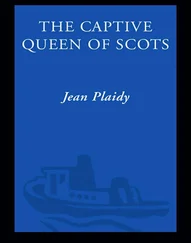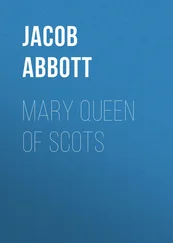Henry Bell - Life of Mary Queen of Scots, Volume 2 (of 2)
Здесь есть возможность читать онлайн «Henry Bell - Life of Mary Queen of Scots, Volume 2 (of 2)» — ознакомительный отрывок электронной книги совершенно бесплатно, а после прочтения отрывка купить полную версию. В некоторых случаях можно слушать аудио, скачать через торрент в формате fb2 и присутствует краткое содержание. Жанр: foreign_antique, foreign_prose, на английском языке. Описание произведения, (предисловие) а так же отзывы посетителей доступны на портале библиотеки ЛибКат.
- Название:Life of Mary Queen of Scots, Volume 2 (of 2)
- Автор:
- Жанр:
- Год:неизвестен
- ISBN:нет данных
- Рейтинг книги:5 / 5. Голосов: 1
-
Избранное:Добавить в избранное
- Отзывы:
-
Ваша оценка:
- 100
- 1
- 2
- 3
- 4
- 5
Life of Mary Queen of Scots, Volume 2 (of 2): краткое содержание, описание и аннотация
Предлагаем к чтению аннотацию, описание, краткое содержание или предисловие (зависит от того, что написал сам автор книги «Life of Mary Queen of Scots, Volume 2 (of 2)»). Если вы не нашли необходимую информацию о книге — напишите в комментариях, мы постараемся отыскать её.
Life of Mary Queen of Scots, Volume 2 (of 2) — читать онлайн ознакомительный отрывок
Ниже представлен текст книги, разбитый по страницам. Система сохранения места последней прочитанной страницы, позволяет с удобством читать онлайн бесплатно книгу «Life of Mary Queen of Scots, Volume 2 (of 2)», без необходимости каждый раз заново искать на чём Вы остановились. Поставьте закладку, и сможете в любой момент перейти на страницу, на которой закончили чтение.
Интервал:
Закладка:
Bothwell, having dismissed the others, went up stairs and joined the Queen and her friends in Darnley’s apartment, as if he had that moment come to the Kirk-of-Field. Shortly afterwards, Paris also entered; and the Queen, being either reminded of, or recollecting her promise, to grace with her presence Sebastian’s entertainment, rose, about eleven at night, to take leave of her husband. It has been asserted, upon the alleged authority of Buchanan, that, before going away, she kissed him, and put upon his finger a ring, in pledge of her affection. It seems doubtful, however, whether this is Buchanan’s meaning. He certainly mentions, in his own insidious manner, that Mary endeavoured to divert all suspicions from herself, by paying frequent visits to her husband, by staying with him many hours at a time, by talking lovingly with him, by paying every attention to his health, by kissing him, and making him a present of a ring; but he does not expressly say that a kiss and ring were given upon the occasion of her parting with Darnley for the last time. 43 43 Buchanan’s History , Book XVIII. may be compared with his Detection in Anderson, vol. i. p. 22 and 72.
It is not at all unlikely, that the fact may have been as Buchanan is supposed to state; but as it is not a circumstance of much importance, it is unnecessary to insist upon its being either believed or discredited so long as it is involved in any uncertainty. Buchanan mentions another little particular, which may easily be conceived to be true, – that, in the course of her conversation with her husband this evening, Mary made the remark, that “just about that time last year David Rizzio was killed.” Bothwell, at such a moment, could not have made the observation; but it may have come naturally enough from Mary, or Darnley himself. 44 44 Buchanan’s History , Book XVIII.
Accompanied by Bothwell, Argyle, Huntly, Cassils, and others, Mary now proceeded to the palace, going first up the Blackfriars’ Wynd, and then down the Canongate. Just as she was about to enter Holyrood House, she met one of the Earl of Bothwell’s servants (either Dalgleish or Powrie), whom she asked where he had been, that he smelt so strongly of gunpowder? The fellow made some excuse, and no further notice was taken of the circumstance. 45 45 Freebairn’s Life of Mary, p. 112 and 114.
The Queen proceeded immediately to the rooms where Sebastian’s friends were assembled; and Bothwell, who was very anxious to avoid any suspicion, and, above all, to prevent Mary from suspecting him, continued to attend her assiduously. Paris, who carried in his pocket the key of Mary’s bed-room at the Kirk-of-Field, in which he had locked Hay and Hepburn, followed in the Earl’s train. Upon entering the apartment where the dancing and masquing was going on, this Frenchman, who had neither the courage nor the cunning necessary to carry him through such a deed of villany, retired in a melancholy mood to a corner, and stood by himself wrapt in a profound reverie. Bothwell, observing him, and fearing that his conduct might excite observation, went up to him, and angrily demanded why he looked so sad, telling him in a whisper, that if he retained that lugubrious countenance before the Queen, he should be made to suffer for it . Paris answered despondingly, that he did not care what became of himself, if he could only get permission to go home to bed, for he was ill. “No,” said Bothwell, “you must remain with me; would you leave those two gentlemen, Hay and Hepburn, locked up where they now are?” – “Alas!” answered Paris, “what more must I do this night? I have no heart for this business.” Bothwell put an end to the conversation, by ordering Paris to follow him immediately. 46 46 Deposition of Paris in Laing, vol. ii. p. 305.
It is uncertain whether the Queen had retired to her own chamber before Bothwell quitted the Palace, or whether he left her at the masque. Buchanan, always ready to fabricate calumny, says, that the Queen and Bothwell were “in long talk together, in her own chamber after midnight.” But the falsehood of this assertion is clearly established; for Buchanan himself allows, that it was past eleven before Mary left the Kirk-of-Field, and Dalgleish and Powrie both state, that Bothwell came to his own lodgings from the Palace about twelve. If, therefore, he was at the masque, as we have seen, he had no time to talk with the Queen in private; and, if he had talked with the Queen, he could not have been at the masque. It is most likely that Mary continued for some time after Bothwell’s departure at Sebastian’s wedding, for Sebastian was “in great favour with the Queen, for his skill in music and his merry jesting.”
As soon as Bothwell came to his “own lodging in the Abbey,” he exchanged his rich court dress for a more common one. Instead of a black satin doublet, bordered with silver, he put on a white canvass doublet, and wrapt himself up in his riding-cloak. Taking Paris, Powrie, Wilson and Dalgleish with him, he then went down the lane which ran along the wall of the Queen’s south gardens, and which still exists, joining the foot of the Canongate, where the gate of the outer court of the Palace formerly stood. Passing by the door of the Queen’s garden, where sentinels were always stationed, the party was challenged by one of the soldiers, who demanded, “Who goes there?” They answered, “Friends.” “What friends?” “Friends to my Lord Bothwell.” They proceeded up the Canongate till they came to the Netherbow Port, or lower gate of the city, which was shut. They called to the porter, John Galloway, and desired him to open to friends of my Lord Bothwell. Galloway was not well pleased to be raised at so late an hour, and he kept them waiting for some time. As they entered, he asked, “What they did out of their beds at that time of night?” but they gave him no answer. As soon as they got into the town, they called at Ormiston’s lodgings, who lived in a house, called Bassyntine’s house, a short way up the High Street, on the south side; but they were told that he was not at home. They went without him, down a close below the Blackfriars Wynd, till they came to the gate of the Convent Gardens already mentioned. They entered, and, crossing the gardens, they stopped at the back wall, a short way behind Darnley’s residence. Here, Dalgleish, Wilson, and Powrie, were ordered to remain; and Bothwell and Paris passed in, over the wall. Having gone into the lower part of the house, they unlocked the door of the room in which they had left Hay and Hepburn, and the four together held a consultation regarding the best mode of setting fire to the gunpowder, which was lying in a great heap upon the floor. They took a piece of lint, three or four inches long, and kindling one end of it, they laid the other on the powder, knowing that it would burn slowly enough to give them time to retire to a safe distance. They then returned to the Convent gardens; and having rejoined the servants whom they had left there, the whole group stood together, anxiously waiting for the explosion.
Darnley, meantime, little aware of his impending fate, had gone to bed within an hour after the Queen had left him. His servant, William Taylor, lay, as was his wont, in the same room. Thomas Nelson, Edward Simmons, and a boy, lay in the gallery, or servant’s apartment, on the same floor, and nearer the town-wall. Bothwell must have been quite aware, that from the mode of death he had chosen for Darnley, there was every probability that his attendants would also perish. But when lawless ambition once commences its work of blood, whether there be only one, or a hundred victims, seems to be a matter of indifference. 47 47 Evidence of Thomas Nelson, Anderson, vol. iv. p. 165.
The conspirators waited for upwards of a quarter of an hour without hearing any noise. Bothwell became impatient; and unless the others had interfered, and pointed out to him the danger, he would have returned and looked in at the back window of the bedroom, to see if the light was burning. It must have been a moment of intense anxiety and terror to all of them. At length, every doubt was terminated. With an explosion so tremendous, that it shook nearly the whole town, and startled the inhabitants from their sleep, the house of the Kirk-of-Field blew up into a thousand fragments, leaving scarcely a vestige standing of its former walls. Paris, who describes the noise as that of a storm of thunder condensed into one clap, fell almost senseless, through fear, with his face upon the earth. Bothwell himself, though “a bold, bad man,” confessed a momentary panic. “I have been at many important enterprises,” said he, “but I never felt before as I do now.” Without waiting to ascertain the full extent of the catastrophe, he and his accomplices left the scene of their guilt with all expedition. They went out at the Convent-gate, and, having passed down to the Cowgate, they there separated, and went up by different roads to the Netherbow-Port. They were very desirous to avoid disturbing the porter again, lest they should excite his suspicion. They therefore went down a close, which still exists, on the north side of the High Street, immediately above the city gate, expecting that they would be able to drop from the wall into Leith Wynd; but Bothwell found it too high, especially as a wound he had received at Hermitage Castle, still left one of his hands weak. They were forced, therefore, to apply once more to John Galloway, who, on being told that they were friends of the Earl Bothwell, does not seem to have asked any questions. On getting into the Canongate, some people were observed coming up the street; to avoid them, Bothwell passed down St Mary’s Wynd, and went to his lodgings by the back road. The sentinels, at the door of the Queen’s garden again challenged them, and they made the usual answer, that they were friends of the Earl Bothwell, carrying despatches to him from the country. The sentinels asked, – “If they knew what noise that was they had heard a short time before?” They told them they did not. 48 48 The Confessions and Depositions in Anderson, vol. ii. and vol. iv; and in Laing, vol. ii.
Интервал:
Закладка:
Похожие книги на «Life of Mary Queen of Scots, Volume 2 (of 2)»
Представляем Вашему вниманию похожие книги на «Life of Mary Queen of Scots, Volume 2 (of 2)» списком для выбора. Мы отобрали схожую по названию и смыслу литературу в надежде предоставить читателям больше вариантов отыскать новые, интересные, ещё непрочитанные произведения.
Обсуждение, отзывы о книге «Life of Mary Queen of Scots, Volume 2 (of 2)» и просто собственные мнения читателей. Оставьте ваши комментарии, напишите, что Вы думаете о произведении, его смысле или главных героях. Укажите что конкретно понравилось, а что нет, и почему Вы так считаете.












